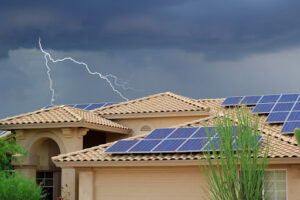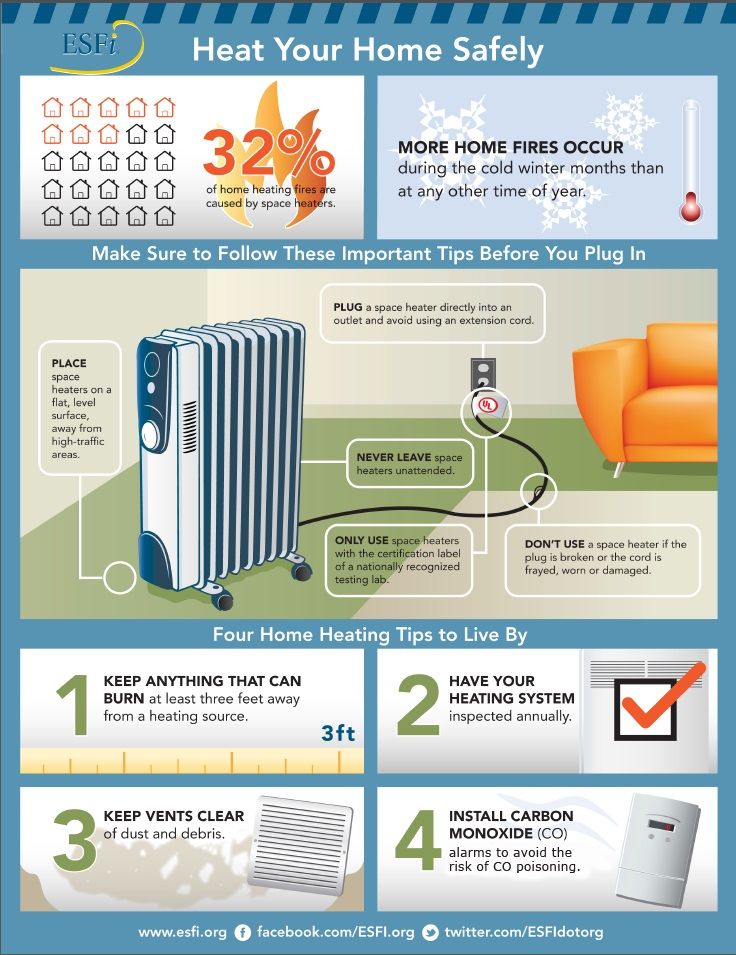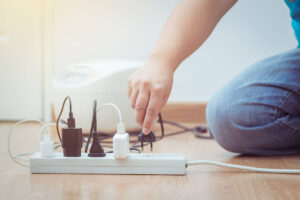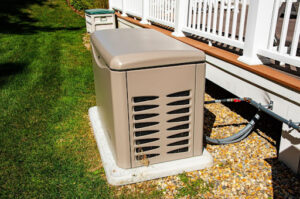
What to Do After Your House Is Struck by Lightning
Lightning strikes can be a terrifying experience for any homeowner. The powerful boom and bright flash are unmistakable, leaving you to wonder about the safety
Each year, electrical fires increase during the winter months due to an increase in the use of electrical products. This raises the chances of electrical fires, electrocutions, and other injuries.
Additionally, home fires in general increase during the colder months, with heating equipment being the second leading cause.
For more information on winter safety, see this infographic, provided by Electrical Safety Foundation International:

For more winter safety information:
Space Heater Safety – More than 65,000 home fires are attributed to space heaters. Learn how to use one safely.
Heating Pads and Electric Blankets Safety – Heating pads and electric blankets cause almost 500 fires each year.
Carbon Monoxide Safety – The winter months hold the highest risk for CO poisoning deaths. Every year over 200 people die from CO poisoning. Learn how to stay safe.
Surprisingly, over 3,000 electrical fires are attributable to extension cords alone. Many other electrical fires and injuries occur with counterfeit electrical products, large appliances, and natural disasters. Gain some peace of mind by following our winter electrical safety checklist:
More than 3,000 electrical fires are caused by extension cords each year, resulting in 50 deaths and 270 injuries. Large appliances cause nearly 20 percent of consumer-product electrocutions annually. U.S. Customs confiscates more than $3 million in consumer electrical products each year, and explains that products with counterfeit certification marks, including CSA, UL and ETL, have not been tested for shock and fire hazardsStatistics show that home fires increase during the months of December and January- mainly because of the increased use of heating equipment and holiday lighting. A lot of the heating equipment and holiday lighting is powered by extension cords.
Extension cords can be very convenient for many people, but they also pose a potential fire hazard if overloaded. Along with the increase in overloaded extension cords this time of the year, there is also a rise in the number of counterfeit electrical products sold. This is a dangerous combination for your home.
For more information about electrical service and repair or electrical home safety, visit us online or drop us a message on our Facebook, Twitter, and Google+ pages.
Universal Home Experts is your trusted source for all of your plumbing, electrical, and HVAC needs.
We service the entire Houston area. Don’t forget to schedule your annual heating maintenance tune-up. It will extend the life of your HVAC system, increase energy efficiency, and ensure your warranties remain valid.
Our lines are open 24/7 at (713) 364-0226.

Lightning strikes can be a terrifying experience for any homeowner. The powerful boom and bright flash are unmistakable, leaving you to wonder about the safety

It’s easy to overlook the silent threats that lurk within the walls of your own home — especially when it comes to the electrical system.

In today’s world, where unpredictability seems to be the only constant, ensuring the reliability and safety of our homes has become paramount. Whether it’s due